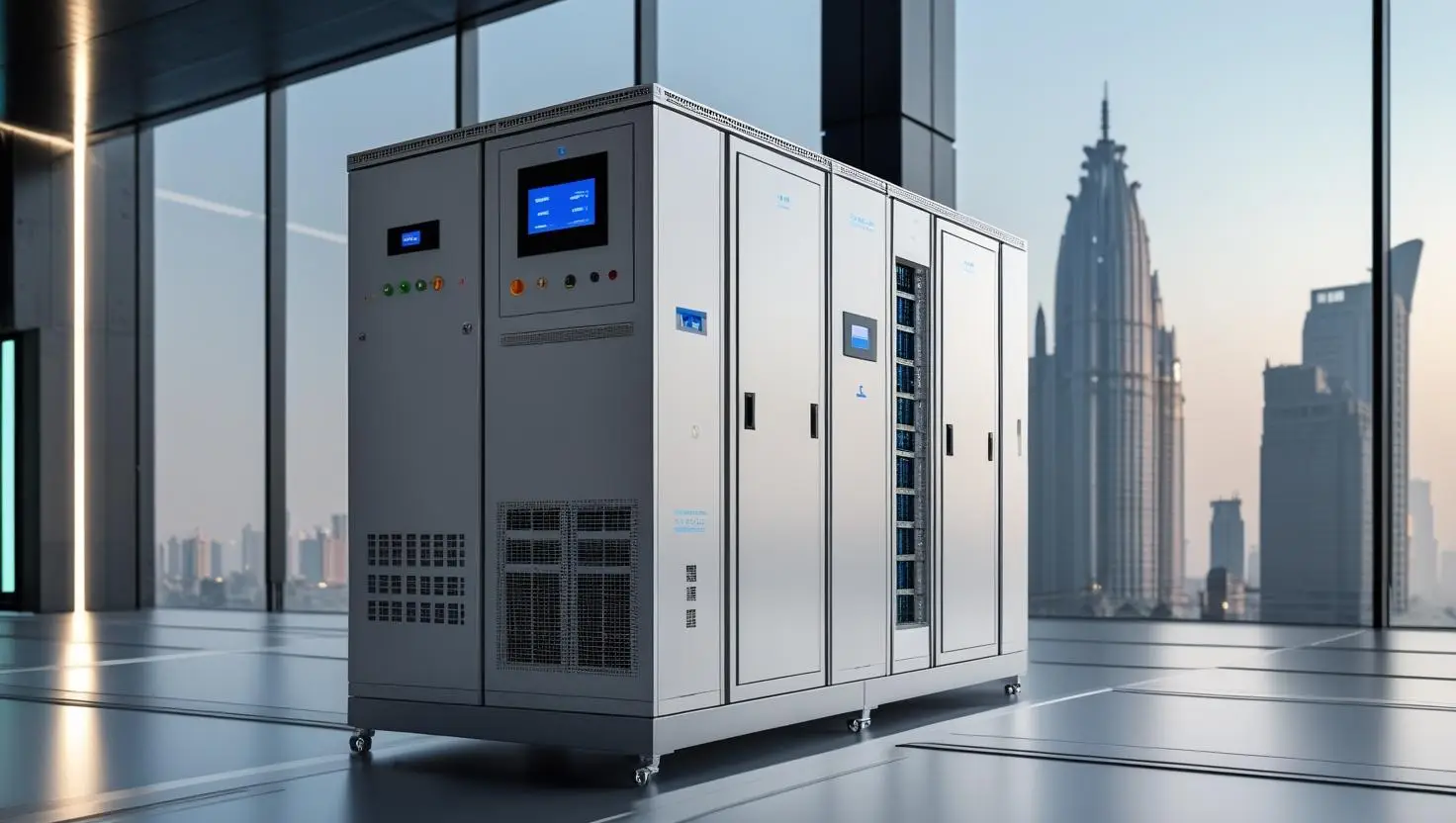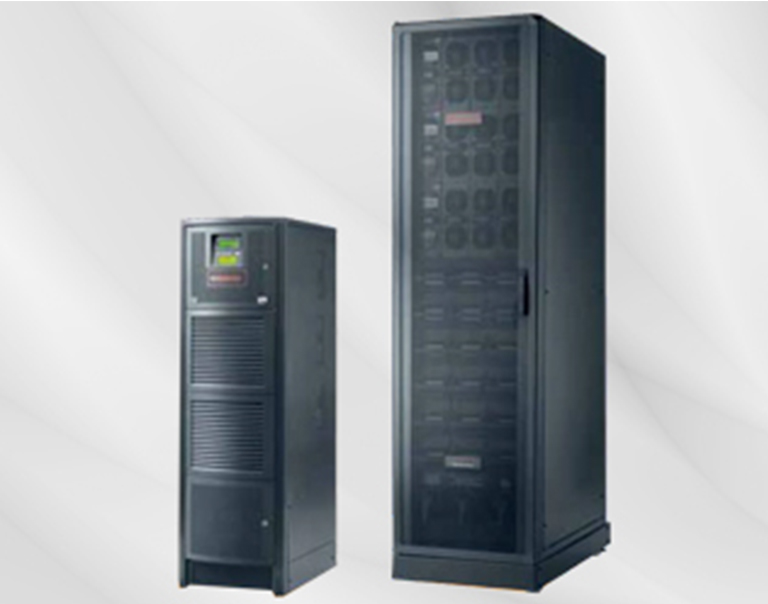In a busy metropolitan city like Mumbai, reliable power is essential. From small home offices and shops to corporate offices and data centers, unpredictable power cuts and voltage fluctuations can disrupt work, damage equipment, and cause data loss. Good UPS maintenance in Mumbai is the safety net that keeps your operations running smoothly.
This comprehensive guide explains everything you need to know about maintaining Uninterruptible Power Supplies (UPS) — from simple home units to large online UPS and modular UPS systems used by enterprises. You’ll learn routine checklists, battery care, AMC benefits, troubleshooting, cost considerations, and how Activolt can help with UPS AMC and support in Mumbai.
Why UPS Maintenance Matters
A UPS is more than a box with batteries. It’s a complex system involving power electronics, batteries, control circuitry, cooling, and monitoring. Regular maintenance:
- Prevents unexpected failures and downtime.
- Extends battery and UPS lifespan.
- Ensures safety (protects against overheating, leaks, and fires).
- Keeps performance optimal — clean, stable power for sensitive electronics.
- Reduces total cost of ownership (TCO) over the long term.
In short, regular UPS maintenance in Mumbai reduces risk, expense, and stress.
Types of UPS & Their Maintenance Needs
1. Standby / Offline UPS (commonly used at homes and small offices)
- Simpler electronics, fewer moving parts.
- Maintenance focuses on battery checks, load testing, and firmware (if present).
2. Line-Interactive UPS
- Includes AVR (Automatic Voltage Regulation).
- Maintenance: battery health, AVR calibration, and board checks.
3. Online / Double-Conversion UPS (common in data centers, hospitals)
- Always supplies load through the inverter; best protection.
- Maintenance: battery banks, fans, capacitors, power modules, firmware, ventilation, and thermal management.
4. Modular UPS
- Scalable, with hot-swappable modules.
- Maintenance: module-level checks, redundancy testing, battery management system (BMS) checks.
UPS Maintenance Checklist — Daily / Weekly / Monthly / Yearly
Daily / Weekly (or as part of remote monitoring)
- Check UPS status LEDs / display for alarms.
- Review logs for abnormalities (voltage spikes, internal faults).
- Verify communication links to the monitoring software.
- For homes: check that UPS is powering critical devices and not overloaded.
Monthly
- Inspect battery terminals for corrosion or loose connections.
- Listen for unusual noises (fans, relays).
- Check room temperature and ventilation.
- Verify load levels — ensure you’re not routinely running near maximum capacity.
Quarterly
- Run a full self-test or simulated power failure to check the battery & transfer.
- Check and clean air inlets and filters.
- Inspect batteries visually for swelling or leakage (if applicable).
- Test alarms and remote notifications.
Bi-Annual
- Measure battery voltage, internal resistance, and specific gravity (for flooded cells if any).
- Check inverter and rectifier output waveforms.
- Inspect capacitors and power electronics for signs of wear.
Annual
- Full preventive maintenance (ideally covered under AMC): battery replacement planning, capacitor checks, fan and bearing servicing, firmware updates, and calibration.
- Thermal imaging to detect hot spots in connections and busbars.
- Complete report and lifetime prediction for batteries and key components.
Batteries: The Heart of Your UPS
Batteries deserve special attention because they are the most failure-prone (and expensive to replace). Key battery types you’ll encounter in Mumbai:
- Sealed Lead Acid (SMF/VRLA) — Low maintenance, common for homes and small offices.
- Tubular Batteries — Longer life, better deep discharge performance; commonly used in Indian environments (many call these solar tubular batteries in Mumbai when paired with solar).
- Lithium-ion — Higher upfront cost, longer lifespan, lighter weight, increasingly used in modern deployments.
Battery Maintenance Best Practices
- Maintain correct float charge voltage (temperature-compensated charging is ideal).
- Avoid deep discharges whenever possible.
- Keep batteries in ventilated, temperature-controlled rooms (optimal ~20–25°C). Mumbai’s humidity and heat can accelerate battery degradation — temperature control is critical.
- Schedule regular capacity and internal resistance tests.
- Replace battery banks proactively (don’t wait for catastrophic failure).
- Use genuine replacement batteries from trusted suppliers — Activolt supplies and installs trusted batteries in Mumbai.
UPS Maintenance for Different Environments in Mumbai
Homes & Small Offices
- Focus on battery health, simple load balancing, and keeping the UPS in a dust-free, ventilated area.
- A quarterly self-test and annual inspection are usually sufficient.
- If you depend on a home lab or home-office server, consider upgrading to a line-interactive or online UPS in Mumbai for better protection.
Small/Mid Businesses & Retail
- Regular monthly checks and a preventive maintenance visit every 6 months.
- Keep spare batteries and a service contract (AMC) to minimize business interruption.
- Consider a modular UPS in Mumbai if growth or variable loads are expected.
Data Centers & Critical Facilities
- Full preventive maintenance every 3–6 months.
- Use remote monitoring, hot-swap spare modules, and N+1 redundant configurations.
- Thermal imaging, capacitor checks, and full load-bank testing are essential.
- AMC with guaranteed SLAs is non-negotiable — Activolt offers SLAs tailored for data centers.
UPS AMC (Annual Maintenance Contract): Why It’s Worth It
An AMC converts unpredictable repair costs into predictable annual fees — and it provides far more than just peace of mind.
Benefits of UPS AMC and support in Mumbai:
- Scheduled preventive maintenance and inspections.
- Priority response and faster mean time to repair (MTTR).
- Discounted spare parts and battery replacement.
- Performance logs and lifecycle reports.
- Compliance documentation for audits.
- Predictable budgeting and lower total cost of ownership.
Activolt provides tailored AMC plans in Mumbai — from basic checkups for small offices to enterprise-grade SLAs with 24/7 support for data centers.
DIY Maintenance vs Professional Support
DIY Tasks (safe for most users)
- Keep the area clean and ventilated.
- Visual battery inspections (swelling, leakage).
- Check the UPS display and notice error codes.
- Run monthly self-tests provided by UPS.
Tasks Requiring Professionals
- Battery load testing and replacement.
- Rectifier/inverter board servicing.
- Capacitor replacement.
- Thermal imaging and high-voltage checks.
- Rewiring, transformer, or three-phase work.
- Firmware updates and advanced diagnostics.
For professional services, choose a reputable local partner familiar with Mumbai’s environment and logistics — such as Activolt, who offer on-site engineers and spares locally.
Troubleshooting Common UPS Issues
1. UPS Not Switching to Battery
- Possible causes: faulty transfer relay, exhausted battery, or communication fault.
- Action: Check battery voltage, error logs, and contact a certified technician.
2. UPS Overheating
- Causes: blocked ventilation, failed fan, or high ambient temperature (common in Mumbai summers).
- Action: Improve ventilation, replace fans, and install air-conditioning if required.
3. Reduced Backup Time
- Causes: aging batteries, frequent deep cycles, and charge circuit failure.
- Action: Load test batteries, consider battery replacement.
4. Frequent Alarms or Faults
- Causes: power quality issues, internal component aging, or incorrect settings.
- Action: Review logs, check input quality, call for service.
5. Noise or Buzzing
- Causes: failing transformer core, loose parts, or fans.
- Action: Immediate inspection — could be a safety issue.
Cost Considerations & Budgeting
UPS maintenance and battery replacement are predictable expenses when planned correctly.
- Small UPS (home/SME) — Annual AMC + occasional battery replacement (every 3–5 years).
- Medium UPS (small office/retail) — AMC with quarterly visits; battery banks replaced every 3–6 years, depending on use.
- Large/Enterprise (data centers) — Comprehensive AMC, remote monitoring, spare modules, and proactive replacement programs. Expect higher costs but far lower risk of downtime.
A helpful approach is to calculate Total Cost of Ownership (TCO): purchase price + AMC + battery replacement costs + downtime risk. Activolt can help run TCO calculations and recommend the most economical option.
Environmental & Safety Considerations in Mumbai
- Proper battery disposal: Lead-acid batteries are hazardous waste — use certified recyclers. Activolt helps manage battery disposal and replacement responsibly.
- Humidity control: Mumbai’s high humidity accelerates corrosion — use dehumidifiers or climate-controlled rooms for critical installations.
- Fire safety: Install fire suppression/detection near UPS & battery rooms. Regular maintenance reduces thermal risks.
- Earth grounding: Proper earthing is essential to protect equipment and staff.
Choosing a Reliable UPS Maintenance Partner in Mumbai
Key selection criteria:
- Proven local experience and references.
- Clear SLAs and response time commitments.
- Availability of spare parts and batteries locally (reduces downtime).
- Skilled technicians (trained for brands and three-phase systems).
- Transparent reporting and proactive recommendations.
- Competitive AMC plans with scalable service tiers.
Activolt checks all these boxes — offering professional UPS maintenance in Mumbai, AMC packages, battery supply (including solar tubular batteries in Mumbai), and 24/7 support.
Checklist Before Signing an AMC
- Confirm SLA response times for on-site visits.
- Ask about spare parts availability and warranty coverage.
- Confirm battery replacement policy & cost structure.
- Ensure monitoring & reporting frequency (remote alerts, monthly reports).
- Ask for references and case studies in Mumbai environments similar to yours.
- Verify certification and trained staff for the specific UPS brand.
Frequently Asked Questions (FAQ)
Q1: How often should I test my UPS battery?
A1: Monthly quick checks, quarterly capacity tests, and an annual full load test are recommended. High-use systems may need more frequent monitoring.
Q2: What is the typical lifespan of UPS batteries in Mumbai?
A2: For lead-acid / SMF: 3–5 years (temperature and usage dependent). Tubular batteries often last longer (4–6 years). Lithium batteries can last 8–12 years.
Q3: Can I run UPS in Mumbai without an AMC?
A3: You can, but the risk of sudden failure, data loss, and higher costs increases. AMC reduces risk and provides predictable maintenance.
Q4: Is a modular UPS better for offices in Mumbai?
A4: Yes — modular UPS offers scalability, easier maintenance (hot-swap modules), and redundancy, ideal for growing offices and data centers.
Q5: How much backup time do I need?
A5: It depends. For graceful shutdowns, 15–30 minutes may be enough. For longer outages, 1–4 hours (or generator integration) may be required. Activolt can calculate the required autonomy.
Closing: How Activolt Helps
Maintaining UPS systems in Mumbai requires local expertise, fast response, and good supply chains for batteries and spares. Activolt delivers:
- End-to-end UPS AMC and support in Mumbai.
- Professional UPS maintenance in Mumbai for homes, offices, and data centers.
- Local supply of batteries in Mumbai, including solar tubular batteries.
- Support for online UPS in Mumbai and modular UPS in Mumbai installations.
- Transparent SLAs, proactive reporting, and certified technicians.
If you want to protect your business operations and reduce downtime, get a custom maintenance plan tailored to your site. Reach out to Activolt for an assessment and a no-obligation proposal.




